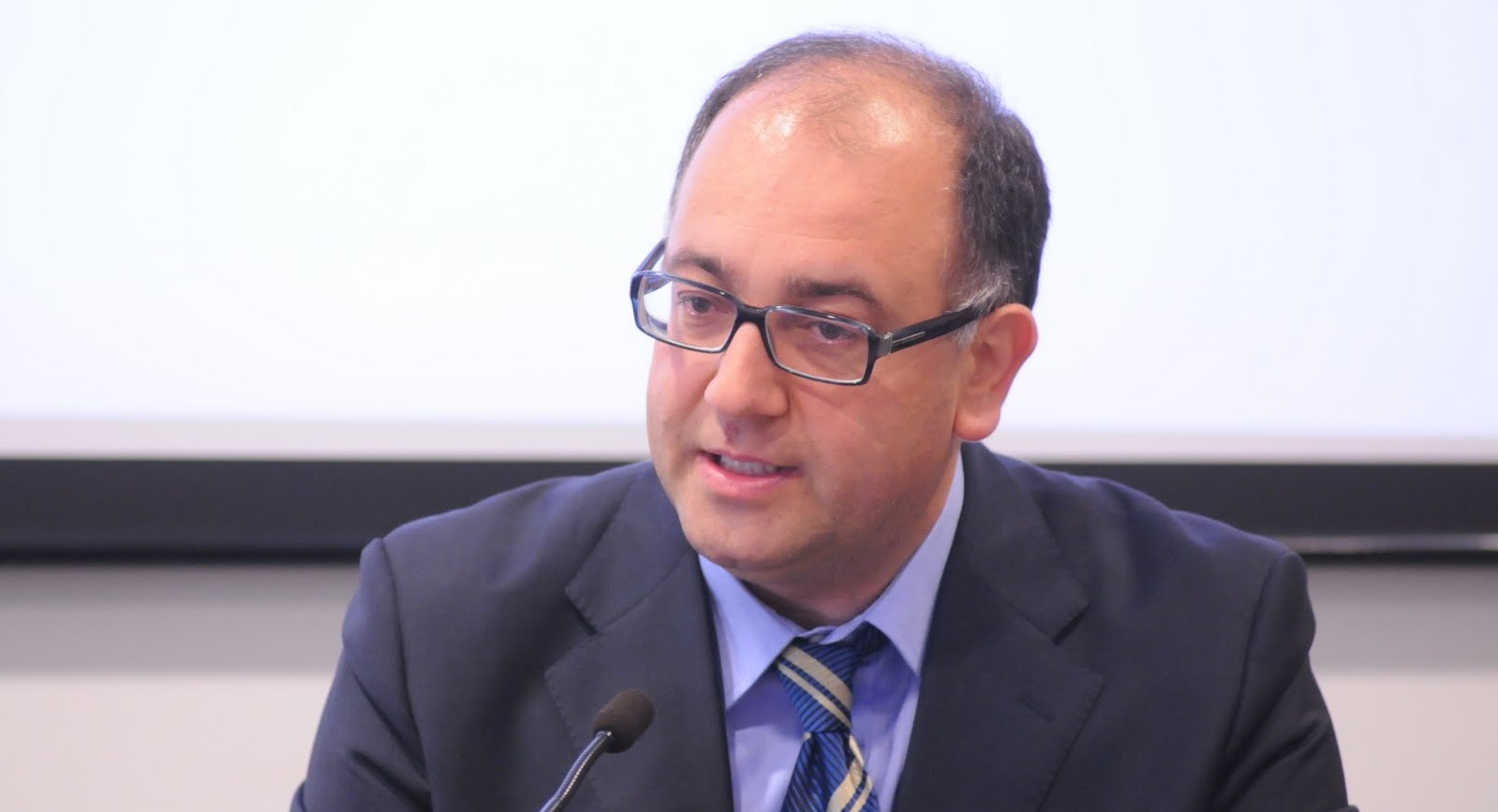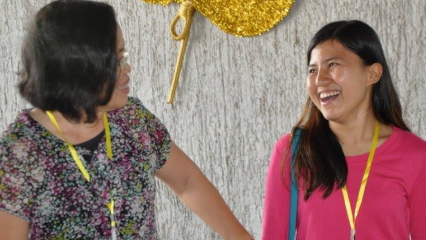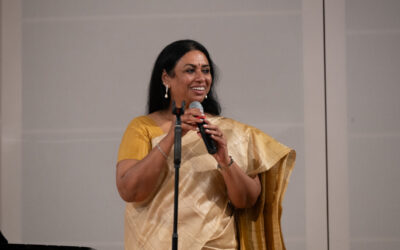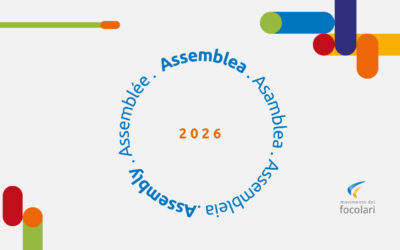 “One day I’ll tell you, I’ve given up my happiness for you.” This is the first line of a song by Stadio, the recent winner at the Sanremo Italian Song Festival. It gives us the opportunity to think about our own happiness and that of the people around us. Society has placed the search for personal happiness at the core of own humanism, banishing to the end of the line other values, including the happiness of others – unless they are useful for increasing our happiness. And we no longer have mental categories for understanding the decisions (that still exist) of those who knowingly sacrifice their own happiness for the happiness of another. […] Happiness has had a long history. Christian humanism which innovated many elements of the Greek culture, proposed the idea of “limited happiness” wherein the pursuit of our personal happiness was never considered the ultimate goal of life, because it was subordinate to other values, such as the happiness of the community, the family or the eternal life. For centuries we believed that the only happiness worthy of being achieved was that of others, of everyone. […]
“One day I’ll tell you, I’ve given up my happiness for you.” This is the first line of a song by Stadio, the recent winner at the Sanremo Italian Song Festival. It gives us the opportunity to think about our own happiness and that of the people around us. Society has placed the search for personal happiness at the core of own humanism, banishing to the end of the line other values, including the happiness of others – unless they are useful for increasing our happiness. And we no longer have mental categories for understanding the decisions (that still exist) of those who knowingly sacrifice their own happiness for the happiness of another. […] Happiness has had a long history. Christian humanism which innovated many elements of the Greek culture, proposed the idea of “limited happiness” wherein the pursuit of our personal happiness was never considered the ultimate goal of life, because it was subordinate to other values, such as the happiness of the community, the family or the eternal life. For centuries we believed that the only happiness worthy of being achieved was that of others, of everyone. […]  In the modern age this ancient and deeply rooted idea of happiness went into a deep crisis and the pre-Christian idea of happiness as the ultimate and absolute goal of life, began to gain ground. […] The contemporary economy with its Anglo Saxon model was a perfect match for the idea of personal happiness. […] As far as the economy is concerned, the earth is inhabited only by people who want to achieve complete personal happiness. Such a description of human choices explains many things, but is useless or misleading when it comes to explaining those few but decisive choices that are connected to our moral and spiritual life. When Abraham headed for Mount Moriah with his son Isaac, he certainly wasn’t thinking of his own happiness […] but certainly was following a most sorrowful voice that led him on. Like him, many people still continue to climb the Mount Moriahs of their lives. There are many good things in our life that are not measured against our personal happiness, and some not even against the happiness of others. The important choices are most often tragic choices. We don’t choose between a good and an evil, but between two goods. There are other choices in which we step off the calculator. And other moments in which we are not even able to choose, but only mutter a submissive “yes”. The world is filled with people who in some decisive moments do not seek their own happiness. […]
In the modern age this ancient and deeply rooted idea of happiness went into a deep crisis and the pre-Christian idea of happiness as the ultimate and absolute goal of life, began to gain ground. […] The contemporary economy with its Anglo Saxon model was a perfect match for the idea of personal happiness. […] As far as the economy is concerned, the earth is inhabited only by people who want to achieve complete personal happiness. Such a description of human choices explains many things, but is useless or misleading when it comes to explaining those few but decisive choices that are connected to our moral and spiritual life. When Abraham headed for Mount Moriah with his son Isaac, he certainly wasn’t thinking of his own happiness […] but certainly was following a most sorrowful voice that led him on. Like him, many people still continue to climb the Mount Moriahs of their lives. There are many good things in our life that are not measured against our personal happiness, and some not even against the happiness of others. The important choices are most often tragic choices. We don’t choose between a good and an evil, but between two goods. There are other choices in which we step off the calculator. And other moments in which we are not even able to choose, but only mutter a submissive “yes”. The world is filled with people who in some decisive moments do not seek their own happiness. […]  Happiness, truth, justice and faith are all primary goods that can never be reduced to only one – even if that one is happiness. We can have a clear idea of which choice will make us happier, we can include in that happiness nearly all the beautiful things of life even the highest, but in spite of this we can freely decide not to choose our happiness when other values come into play and call to us. In that case we might learn a new word: joy which, unlike happiness, never be sought but only accepted as a gift. Anybody who ever left their mark on this world wasn’t pursuing their own personal happiness. They would have considered that too little. Sometimes they found it but never stopped to grab onto it. They preferred to continue the walk following the voice that was leading them. At the end of the walk we won’t be left with the happiness we accumulated. If we’re left with anything, it will be things that are far more serious and true. We are much more than our personal happiness. […] Luigino Bruni La voce dei giorni/1 – Read Italian text (Source: Avvenire)
Happiness, truth, justice and faith are all primary goods that can never be reduced to only one – even if that one is happiness. We can have a clear idea of which choice will make us happier, we can include in that happiness nearly all the beautiful things of life even the highest, but in spite of this we can freely decide not to choose our happiness when other values come into play and call to us. In that case we might learn a new word: joy which, unlike happiness, never be sought but only accepted as a gift. Anybody who ever left their mark on this world wasn’t pursuing their own personal happiness. They would have considered that too little. Sometimes they found it but never stopped to grab onto it. They preferred to continue the walk following the voice that was leading them. At the end of the walk we won’t be left with the happiness we accumulated. If we’re left with anything, it will be things that are far more serious and true. We are much more than our personal happiness. […] Luigino Bruni La voce dei giorni/1 – Read Italian text (Source: Avvenire)
Be close to those who suffer
Be close to those who suffer




0 Comments